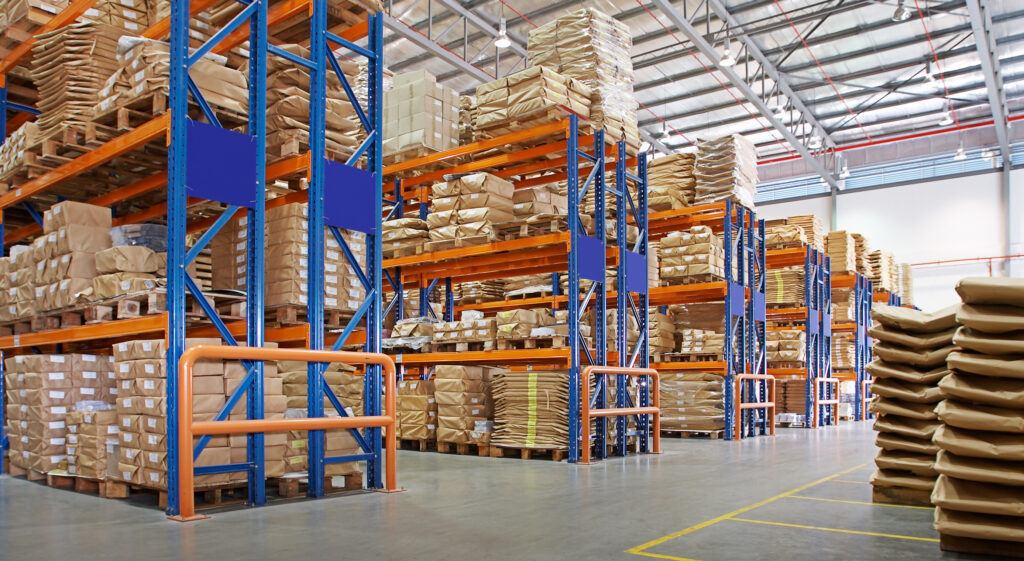Table of Contents
Warehouse conveyor systems are revolutionizing the logistics industry, providing unparalleled efficiency and reliability in moving goods. Whether you’re managing a small distribution center or a massive fulfillment hub, warehouse conveyor systems are indispensable tools for optimizing operations. In this blog post, we’ll explore the many advantages of these systems, highlighting why Lafayette Engineering should be your go-to partner for all your conveyor system needs.
1. Increased Efficiency
Warehouse conveyor systems significantly boost efficiency by automating the movement of goods. This reduces the need for manual labor and speeds up the sorting and transportation process. Automated systems can operate continuously, ensuring that your warehouse runs smoothly around the clock.
2. Cost Savings
By reducing the reliance on manual labor, warehouse conveyor systems help lower operational costs. The initial investment in a conveyor system is quickly offset by savings in labor costs, reduced errors, and improved throughput.
3. Improved Accuracy
Conveyor systems enhance accuracy in order fulfillment by automating the sorting process. This minimizes human errors, ensuring that the right products are delivered to the right locations. High accuracy levels translate to better customer satisfaction and fewer returns.
4. Scalability of Warehouse Conveyor Systems
Warehouse conveyor systems are highly scalable, making them suitable for warehouses of all sizes. As your business grows, you can easily expand your conveyor system to meet increasing demands. This flexibility ensures that your operations can keep pace with your growth.

5. Enhanced Safety
Safety is a paramount concern in any warehouse environment. Conveyor systems help reduce the risk of workplace injuries by minimizing the need for manual handling of heavy goods. Automated systems also include safety features such as emergency stop buttons and sensors to prevent accidents.
6. Space Optimization
Conveyor systems allow for better use of warehouse space. By efficiently organizing the flow of goods, these systems can reduce clutter and create more usable space. This optimization leads to a more orderly and efficient warehouse layout.
7. Consistency and Reliability
Automated conveyor systems provide consistent performance, eliminating the variability associated with human labor. This reliability ensures that your warehouse operations are predictable and dependable, which is crucial for meeting customer expectations and deadlines.
8. Versatility
Modern warehouse conveyor systems are incredibly versatile, capable of handling a wide range of products, from small packages to large pallets. They can be customized to fit the specific needs of your warehouse, including the type of goods you handle and the layout of your facility.
9. Reduced Product Damage
By automating the movement of goods, conveyor systems reduce the risk of product damage caused by manual handling. This preservation of product integrity is vital for maintaining the quality of goods and minimizing losses.
10. Data Integration
Advanced conveyor systems can be integrated with warehouse management systems (WMS) and other software, providing valuable data insights. This integration allows for real-time tracking of goods, better inventory management, and more informed decision-making.
Why Choose Lafayette Engineering?
At Lafayette Engineering, we specialize in designing and implementing custom warehouse conveyor systems that meet the unique needs of our clients. Our team of experts works closely with you to understand your specific requirements and develop solutions that enhance your operational efficiency. With our extensive experience and commitment to quality, we ensure that your conveyor system is reliable, scalable, and perfectly suited to your warehouse environment.
Visit our website to learn more about our services and how we can help transform your warehouse operations. Connect with us on LinkedIn for the latest updates and insights.
Frequently Asked Questions
1. What types of conveyor systems are available for warehouses?
There are several types of conveyor systems available, including belt conveyors, roller conveyors, pallet conveyors, and overhead conveyors. Each type has its own advantages and is suited for different applications within a warehouse.
2. How do I choose the right conveyor system for my warehouse?
Choosing the right conveyor system depends on various factors, including the types of goods you handle, the size of your warehouse, and your operational requirements. It’s essential to consult with experts like Lafayette Engineering to determine the best solution for your specific needs.
3. What is the typical lifespan of a warehouse conveyor system?
The lifespan of a conveyor system can vary depending on the type and quality of the system, as well as how well it is maintained. Generally, well-maintained conveyor systems can last 10-15 years or longer.
4. How much maintenance do conveyor systems require?
Conveyor systems require regular maintenance to ensure optimal performance and longevity. This includes routine inspections, lubrication, and replacement of worn parts. A maintenance schedule should be established based on the manufacturer’s recommendations.
5. Can conveyor systems be integrated with existing warehouse management systems?
Yes, modern conveyor systems can be integrated with existing warehouse management systems (WMS) and other software platforms. This integration allows for seamless data flow and better overall management of warehouse operations.
6. Are conveyor systems energy-efficient?
Many modern conveyor systems are designed with energy efficiency in mind, incorporating features such as variable speed drives and energy-saving modes. These systems can help reduce energy consumption and lower operational costs.
7. What are the safety features of warehouse conveyor systems?
Safety features of warehouse conveyor systems include emergency stop buttons, safety guards, sensors, and automated shut-off mechanisms. These features are designed to prevent accidents and ensure the safety of warehouse personnel.
8. How long does it take to install a warehouse conveyor system?
The installation time for a warehouse conveyor system depends on the complexity and size of the system. Simple systems can be installed in a few days, while more complex systems may take several weeks. Proper planning and coordination are essential to minimize disruption during installation.
9. Can conveyor systems be customized?
Yes, conveyor systems can be customized to meet the specific needs of your warehouse. Customization options include the type of conveyor, layout design, and integration with other systems. Working with experienced professionals like Lafayette Engineering ensures that your system is tailored to your unique requirements.
10. How do conveyor systems improve warehouse operations?
Conveyor systems improve warehouse operations by automating the movement of goods, reducing manual labor, increasing accuracy, and enhancing safety. These benefits lead to higher efficiency, lower costs, and improved overall productivity.
For more information and to discuss your warehouse conveyor system needs, contact us. Our team at Lafayette Engineering is ready to help you achieve your operational goals.



